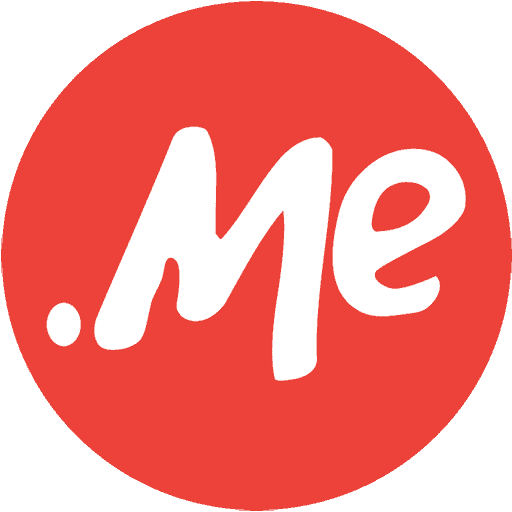Step-by-Step Guide to Self-Marketing

In the ever growing global job market, self-marketing might be our golden ticket to our dream jobs. The geographical location or even native languages don’t represent the leverage for a better job anymore, it’s the skills we possess and the way we are able to promote them online and offline.
Successful self-marketing helps candidates separate themselves from hundreds of other applicants competing for the same position, and it assists professionals to climb higher up the corporate ladder. In self-marketing, there are many different strategies and approaches that help job-seekers stand out, and we have chosen the must-have 5.
Step 1 – Writing a Killer Resume
Written records of your skills, knowledge and work background is the core of self-marketing, however, if they are not accurately presented in the resume, the end-result is the same if there weren’t any to begin with.
Some of the most common mistakes numerous candidates make when writing resumes include too much focus on skill sets, poorly defined list of accomplishments, lack of clearly presented results and objective, quantifiable achievements.
In order to avoid such issues, there are several things you have to take into consideration when writing a resume. First of all, stick to the PDF format to avoiding formatting and grammatical issues – PDF keeps its format on all platforms and screen sizes. Keep in mind that in most cases collecting resumes is an automated process, so you should adjust your form accordingly.
Spell check is a must – a resume full of spelling errors will rarely be seen as important, regardless of its content since it clearly shows the lack of care or poor language skills. It is recommended to have a skills or achievement overview in the first third of the resume to ensure greater impact and higher self-marketing value.
Cover letter is as important and should be just official enough not to sound generic. Spelling and grammar errors (again) are not permitted and all the data needs to be correct. A misspelled name or phone number are reason enough for dismissing your cover letter.
Lacking a subject or not properly marked attachment can also be the reason why we are overlooked by the employeer.
According to Anne Follis, the opening line in a cover letter can really make you stand out:
Do you have a favorite quote that expresses your core professional values? Or is there a quote about you from your letters of reference or job evaluations that is particularly glowing and sums up what makes you unique from the pack? Put it at the top of your cover letter. Is there a story in your career history that defines who you are and what makes you stand out? Lead with it!
Step 2 – Establishing an Online Presence
The best place to start is by claiming your own domain name where you will build and maintain a personal website. The content you post should highlight your skills and knowledge and it should be fresh and on top of the latest industry trends.
In addition to running a personalized website, you should have a 100% completed LinkedIn profile and update it regularly. For example, having recommendations on your profile can significantly boost your self-marketing effect.
Since we are living in a digital world where social media check-ups are a normal part of recruiting, it is paramount that you have a clean public Facebook account. Of course, you can always use privacy setting to keep your fun pics and statuses on Facebook, just private.
Blogging is a great way to get noticed on the net. Focusing on industry-relevant topics and having them featured on leading niche blogs can significantly boost your online presence and be the perfect tool for highly effective self-marketing. Getting your ideas published will attract the positive attention from your future employers and help set you apart from others by showcasing your knowledge of the industry as well the fact that you are staying on top of all the latest trends.
Step 3 – Networking
Networking is a great way to get out there and start meeting the people that can be essential for your future professional success. It is important to remember that a large number of job openings, almost 80%, are not publicly listed or advertised, instead, positions tend to be filled via personal recommendations and networking.
However, before starting a serious networking campaign, you have to make a plan of attack and do some extensive research on people attending. It is imperative you know the who, what, when, where and why at each function you plan to be a part of.
Next, prepare yourself for what is coming. Start by practicing an effective and engaging self-introduction. The three E’s are always important – energy, effort and enthusiasm, but be careful – over enthusiastic and overly energetic people tend to give a wrong impression and often seem insecure which is the last thing that someone wants to emit when working a room.
The most important part about networking is building relationships with future employers or clients. Start by having a strong opening handshake, get to know the person you are engaging in conversation, and always stay positive. Finally, don’t forget to exchange business cards, always RSVP to say thank you and finish a conversation with a friendly line like ‘It’s been lovely talking to you’.
Step 4 – Maintaining the Relationships
Building a successful professional relationship takes time.
Just introducing yourself and having a conversation is not enough, although it is a great first step. It is important to stay in touch, a connection via social networks for professionals is a good way of keeping informed about what your possible business contact is interested in.
Another great way to stay in touch is by congratulating and celebrating major work achievements. This way you show that you are informed about current affairs and at the same time you let your contacts know about the success you have had in your industry.
It is important to keep in mind that the need to maintain a business relationship does not end at 5 p.m. when we leave work. It is an ongoing process that sometimes requires some overtime engagement and weekend interaction.
Conclusions
Being successful at self-marketing requires a lot of time, planning and persistence. You cannot become a recognizable name in your industry over night. In addition, starting a job hunt the wrong way can have a serious effect on your future career. Give yourself time to develop a strategy most suited for your needs and try to stick to the plan. Don’t expect quick results, but also do not give up easily – patience is essential.
By using different channels – from a high-profile online presence, to great resumes and effective networking skills – it is possible not only to obtain the desired job position but also to build long-lasting beneficial professional relationships that might make a difference in your future career path!
